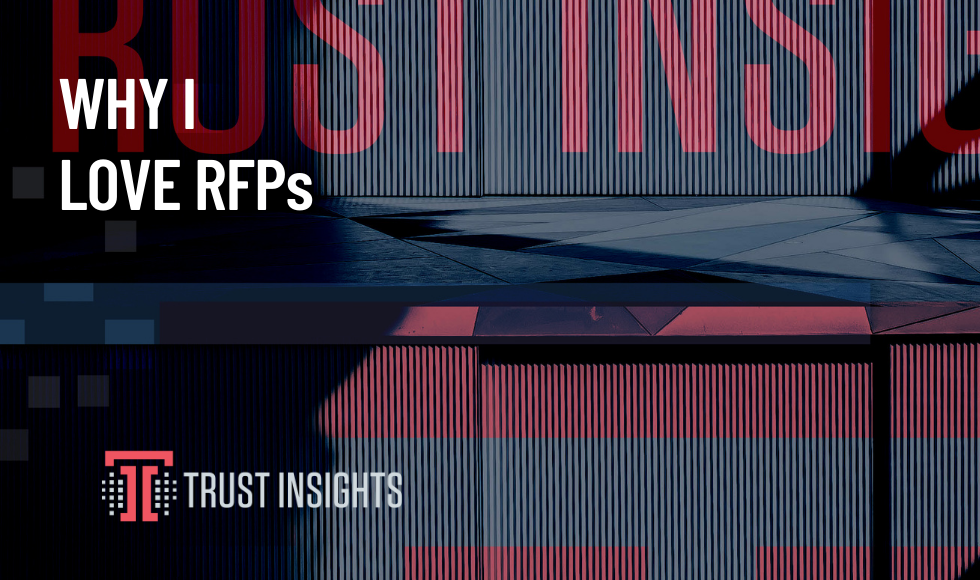I don’t know about you, but I love the RFP process. In this context (in case we’re not on the same page) an RFP is a Request For Proposal. A company will send out an RFP when they are looking to bring on an agency to do some specific work for them.
But you knew all that, smartie pants.
If you know me, then you’ll know that it’s weird for me to say that I love the RFP process. I’ve been through it dozens of times in different jobs and roles.
You’re probably thinking to yourself, “the RFP process is long and painful” and I’m not going to disagree with you. It absolutely can be. It can feel like a waste of resources, especially when the RFP is vague. Your odds of getting selected are low and in the end, you’re frustrated and feel rejected.
So, why do I love RFPs?
It highlights room for improvement
We get so busy with our nose to the grindstone that we can forget to check in with the other members of our team. Responding to an RFP gives you an opportunity to see what other people and departments are working on, and where they may need more support. You may see an RFP request and feel like your company meets all the requirements but when you dig in deeper you realize that there are more skills needed. See this as a positive thing. You can now build a professional development roadmap and set goals for your teams.
It fosters communication
I remember one time, in a previous life, that my team was flown across the country on the client’s dime, for the excuse to get different departments in the same room to talk to each other. That still feels like an insane use of my team’s time, but that’s what they needed. Again, we get so busy that we may check in on surface-level items and high-priority issues, but do we really dive into what’s going on with other teams? I’ve often found that this part of the process allows teams to start breaking down silos and start building more collaborative processes. Responding to an RFP gives you an excuse to get together with other teams and resources that you may not otherwise have a chance to talk to.
It allows you to recognize your accomplishments
Ok, so responding to an RFP isn’t all bad. Most will ask for case studies of programs that you’ve done, demonstrating why you’re a good fit and that you’re capable. I don’t know about you, but writing case studies feels like a chore even though it’s supposed to be positive praise for the work you’ve done. Look at it as an opportunity to toot your own horn a bit. You might be pleasantly surprised at all you’ve accomplished.
You can get dragged down but the RFP process or you can choose to see all the positive things it will do for your company – even if you don’t win the business. You’ll get them next time! Focus on what you’ve learned and commit to applying those lessons moving forward.
How do you feel about the RFP process? Let me know in our free slack group, Analytics for Marketers
|
Need help with your marketing AI and analytics? |
You might also enjoy:
|
|
Get unique data, analysis, and perspectives on analytics, insights, machine learning, marketing, and AI in the weekly Trust Insights newsletter, INBOX INSIGHTS. Subscribe now for free; new issues every Wednesday! |
Want to learn more about data, analytics, and insights? Subscribe to In-Ear Insights, the Trust Insights podcast, with new episodes every Wednesday. |






